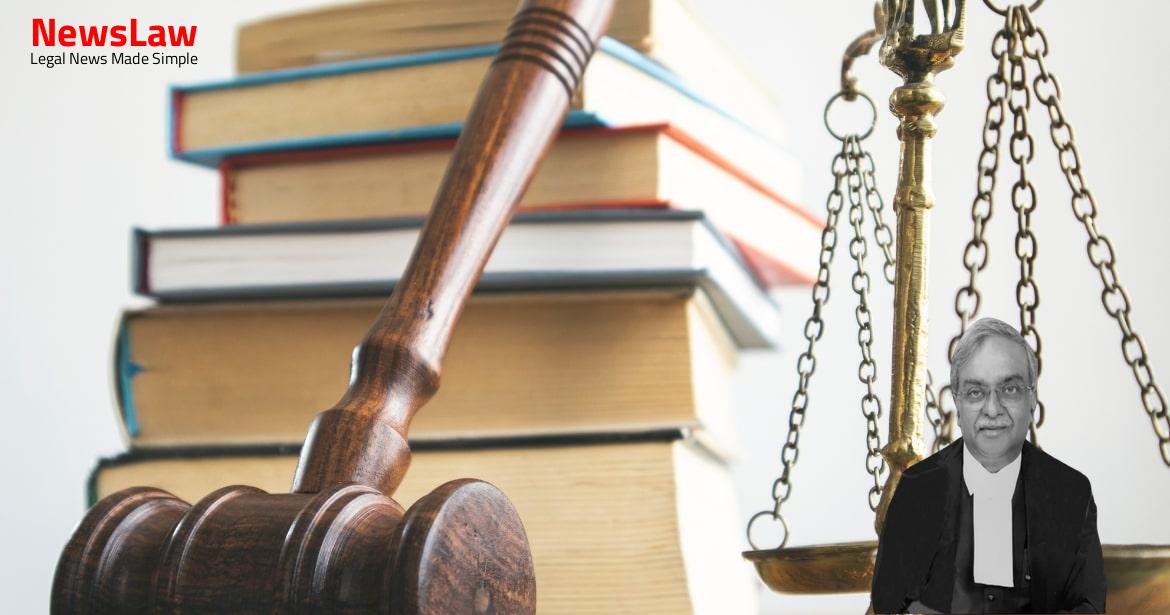In a significant legal development, the Supreme Court of India issued a landmark judgement in a case involving abetment to suicide. This case, which centered around the unfortunate demise of a Social Service Superintendent at CPR Hospital, has sparked debates and discussions. The ruling provides clarity on the parameters of abetment to suicide allegations in the context of the deceased and the accused’s contentious relationship.
Facts
- The Appellant and the deceased jointly purchased the dwelling house, so there was no need to transfer it to the Appellant’s name.
- The offence took place on 17.02.2020 at the dwelling house in Shinganapur, where the accused harassed the deceased for money and transfer of the house in her name.
- The incident resulted in the deceased’s suicide attempt and subsequent death by hanging.
- The Appellant and the deceased had a love affair that turned into marriage against the will of their families.
- There were disputes between the Appellant and the deceased regarding money, house transfer, and abusive behavior.
- The deceased was serving as a Social Service Superintendent at CPR Hospital in Kolhapur.
- The Appellant was charged with abetment to suicide under Section 306 of IPC.
- The Appellant filed a revision application before the High Court.
- The police filed a charge-sheet against the Appellant under Section 306 of IPC.
- The deceased’s family raised grievances against the Appellant after the suicide, leading to an FIR being filed.
- The High Court dismissed the revision application, upholding the charges against the Appellant.
- The Appellant challenges the High Court’s decision in the present appeal.
- The Appellant’s discharge application was rejected by the Trial Court for the offence under Section 306 of the Indian Penal Code, 1860.
- The High Court dismissed the Revision Application filed by the Appellant against the Trial Court’s order dated 24.02.2022.
Also Read: Interpretation of Drawer Liability: Company vs. Authorized Signatory
Arguments
- The learned counsel for the respondent argued that the appellant’s actions met the essential criteria for the offense under Section 306 IPC.
- The evidence collected during the investigation supported the claim that the ingredients for the offense were clearly made out.
- The High Court’s decision to dismiss the petition was considered appropriate based on the evidence presented.
Also Read: Land Ownership Dispute: Validity of Sale Deed between Appellant No.1 and Respondent No.1
Analysis
- The Court emphasizes the need for a thorough examination of facts and circumstances before convicting under Section 306 IPC
- Mere allegations of harassment without direct actions leading to suicide are insufficient for conviction
- The key issue to determine is if the accused’s conduct can be linked to Section 306 IPC
- The Court will continue the trial based on whether the appellant’s behavior prima facie falls under Section 306 of IPC
- To establish abetment under Section 306 of IPC, there must be instigation, engagement in conspiracy, or intentional aid to the commission of suicide.
- Section 107 of IPC defines abetment as instigating, engaging in conspiracy, or intentionally aiding the commission of a crime.
- A person abets the commission of a crime by instigating, engaging in conspiracy, or intentionally aiding the act.
- The abettor must have played an active role in instigating or facilitating the commission of suicide to be charged under Section 306.
- Section 306 prescribes imprisonment and fine for abetment of suicide.
- Abetment involves instigating or intentionally aiding a person in committing a thing.
- Conviction under Section 306 IPC requires a clear mens rea to commit the offense.
- Instigation includes goading, urging forward, provoking, inciting, or encouraging to do an act.
- Actual words or specific suggestions are not necessary for instigation.
- Reasonable certainty to incite the consequence must be present.
- Creating circumstances where the deceased had no option but to commit suicide can be considered instigation.
- An act of abetment must be proved by the prosecution for a conviction under Section 306 IPC.
- Instigation requires an active or direct act intended to push the deceased into a position of committing suicide.
- The prosecution has failed to collect any evidence to substantiate the allegations against the appellant.
- The appellant did not play any active role or direct act to instigate or aid the deceased in committing suicide.
- Statements of the complainant and colleagues of the deceased do not suggest any instigation by the appellant to abet suicide.
- No allegation suggests that the appellant suggested the deceased to commit suicide prior to the incident.
- None of the three essentials of Section 107 read with Section 306 IPC are existing in this case.
- There is no proximate link between the marital dispute in the deceased’s marriage with the appellant and the commission of suicide.
Decision
- The appeal has been allowed.
- The High Court’s order has been set aside.
Case Title: ROHINI SUDARSHAN GANGURDE Vs. THE STATE OF MAHARASHTRA (2024 INSC 519)
Case Number: Crl.A. No.-002877-002877 – 2024



